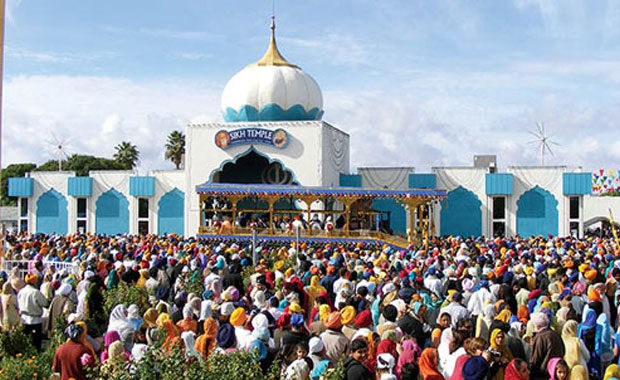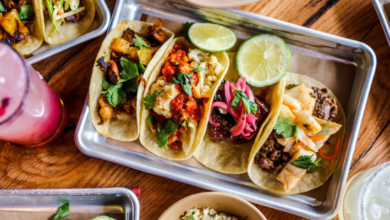How Atlanta’s Punjabi Community Connects & Grows

Atlanta, a city known for its vibrant diversity, has become a melting pot of cultures, and the Punjabi community is a shining example of this cultural tapestry. I’ve always been fascinated by how this community has flourished in the heart of the South, bringing a piece of Punjab right to Atlanta’s doorstep.
From the colorful Bhangra dances to the aromatic spices wafting through the air at local Indian markets, the influence of the Punjabi community is unmistakable here. It’s not just about the food and festivities; it’s about the people who’ve woven their traditions into the fabric of Atlanta’s society, making it richer and more diverse. Join me as I dive into the heart of the Punjabi community in Atlanta, exploring its impact and how it continues to thrive in this bustling city.
Overview of Punjabi Community in Atlanta
When I first embarked on exploring the Punjabi community in Atlanta, I was struck by their vibrant presence. This community has not just survived but thrived, weaving a rich tapestry of culture, tradition, and innovation into the very fabric of the city. Atlanta, known for its Southern hospitality, has opened its arms to the Punjabi’s colorful celebrations, tantalizing cuisines, and enduring traditions, creating a unique blend of cultures.
One of the first things that caught my attention was the significant growth of the Punjabi population over the years. What started as a small group of families has burgeoned into a thriving community. They’re not just preserving their heritage but also sharing it with the wider Atlanta populace. Through festivals like Vaisakhi and Lohri, they’ve brought a piece of Punjab to the South.
Education and business are two arenas where the Punjabi community has made substantial contributions. They’ve established gurudwaras, which apart from being a place of worship, serve as educational centers where the Punjabi language and history are taught. On the business front, Punjabi entrepreneurs have found success in various sectors, marking their influence on Atlanta’s economy.
The culinary landscape in Atlanta has been particularly enriched by the Punjabi influence. Walking through local markets, I’ve discovered an array of aromatic spices and dishes that are quintessentially Punjabi. Restaurants serving authentic Punjabi cuisine have become rendezvous points for not just Indians but food enthusiasts eager to explore exotic flavors.
What makes the Punjabi community stand out is their commitment to inclusivity and community service. Events are often organized with the aim of bringing people together, regardless of their background, to enjoy the rich cultural heritage the Punjabis have to offer. Their contribution towards local charities and community improvement projects highlights their ethos of selflessness.
In my journey to understand the essence of the Punjabi community in Atlanta, I’ve come to appreciate their resilience, warmth, and the colorful vibrancy they bring to the city’s multicultural mosaic.
History of Punjabi Immigration to Atlanta
Early Settlers
When looking back at the roots of the Punjabi community in Atlanta, it’s clear that the story begins decades ago. The first Punjabi settlers made their way to Atlanta in the late 1960s and early 1970s. Many of them were students and professionals drawn by opportunities in education and the booming job market. I’ve always been fascinated by how these pioneers established a base for what would become a thriving community. They laid the groundwork for the vibrant Punjabi presence we see in Atlanta today. Their courage and determination to seek a better life, while preserving their cultural heritage, is truly commendable.
Immigration Trends
Over the years, the pattern of Punjabi immigration to Atlanta has seen significant changes. Initially, the influx was slow, but by the 1980s and 1990s, the pace had noticeably picked up. This surge can be attributed to several factors, including family reunification, better economic prospects, and Atlanta’s growing reputation as a multicultural hub. Data over the last few decades shows a steady increase in the Punjabi population in the area. While accurate numbers can be hard to pinpoint, community estimates suggest that the Punjabi population in Atlanta has grown exponentially.
| Decade | Estimated Growth |
|---|---|
| 1980s – 1990s | Slow Increase |
| 2000s | Moderate Increase |
| 2010s – Today | Rapid Growth |
This growth has not only been in numbers but also in the influence and vibrancy of the Punjabi culture within the city. Atlanta now boasts an array of Punjabi cultural events, businesses, and educational resources that cater to both the Punjabi community and the wider population. The trend of immigration has shaped the city’s landscape, making Punjabi culture an integral part of Atlanta’s diverse mosaic.
Cultural Influences in Atlanta
Food and Cuisine
When it comes to spicing up Atlanta’s food scene, the Punjabi community’s influence is undeniable. I’ve noticed an impressive range of Punjabi restaurants and eateries springing up across the city, offering an authentic taste of North Indian cuisine. From traditional dishes like butter chicken and chole bhature to the savory delights of samosas and pakoras, these establishments provide a gastronomic journey right in the heart of Atlanta.
One of the remarkable aspects of Punjabi cuisine is its emphasis on fresh ingredients and robust flavors, characteristics that have made it a hit among locals and visitors alike. The increasing popularity of Punjabi food has also led to culinary events and cooking classes, further integrating Punjabi flavors into Atlanta’s culinary landscape.
Festivals and Celebrations
Punjabi festivals and celebrations are a vibrant part of Atlanta’s cultural calendar, bringing a splash of color and festivity to the city. The most notable among these is Vaisakhi, the Punjabi New Year, which I’ve seen transform local parks into bustling grounds of cultural celebration, complete with traditional music, dance, and a lavish display of Punjabi attire.
Diwali, the Festival of Lights, is another major event that not only brings the Punjabi community together but also attracts a diverse crowd, eager to witness the spectacular fireworks and indulge in the festive fare. These celebrations offer a glimpse into the rich cultural heritage of the Punjabi community and foster a sense of unity and joy among attendees.
Music and Dance
Punjabi music and dance have carved a unique niche in Atlanta’s cultural scene, resonating with audiences of all backgrounds. Bhangra, a lively form of dance and music originating from Punjab, has gained tremendous popularity, thanks in part to local Bhangra workshops and performances at cultural events. I’ve watched these performances evolve, incorporating contemporary beats while staying true to traditional rhythms, making Bhangra a symbol of cultural fusion and innovation.
The influence of Punjabi music extends beyond dance, with local DJs frequently incorporating Punjabi tracks into their sets, and live Punjabi music performances becoming a regular feature at cultural events. This embrace of Punjabi music and dance not only enriches Atlanta’s cultural tapestry but also serves as a testament to the community’s vibrant contributions to the city’s arts scene.
Challenges Faced by Punjabi Community in Atlanta
The Punjabi community in Atlanta, like any vibrant cultural group setting roots in a new place, faces its share of challenges. These hurdles aren’t just about integration but also about maintaining a unique cultural identity while navigating a different societal landscape. Let’s delve into two significant obstacles: the language barrier and cultural preservation.
Language Barrier
When I first moved to Atlanta, I quickly realized that the language barrier was more than just about daily communication. It’s about expressing yourself fully, understanding local nuances, and, importantly, ensuring your heritage language thrives in a new environment. For many Punjabi families, especially the older generation, this becomes a double-edged sword. They struggle to engage with local communities, services, and even educational systems, which can lead to a sense of isolation.
In workplaces, the challenge amplifies. Without fluent English, career opportunities can seem limited, affecting socio-economic standing. For the younger generation, balancing English and Punjabi becomes a tightrope walk between assimilation and preserving linguistic heritage.
Cultural Preservation
Cultural preservation is deeply interwoven with the fabric of the Punjabi community in Atlanta. It’s about keeping the traditions alive, from festivals to culinary arts, music, and dance. However, the push and pull of assimilation into American culture poses a significant hurdle. There’s a delicate balance between integration and retaining the richness of Punjabi culture. Today, sites like OkJatt are helping spread awareness and preserve the culture.
For parents, transmitting this heritage to their children in an environment vastly different from where they grew up is daunting. Schools predominately focus on American history and culture, leaving little room for students to explore their Punjabi roots. Moreover, the allure of globalized, mainstream media often overshadows traditional Punjabi music, dance, and stories, making cultural preservation an uphill battle.
But it’s not all bleak. The community’s proactive steps, like setting up language classes and cultural festivals, highlight a resilient spirit. Yet, the underlying challenges remain, urging a collective effort to ensure the Punjabi culture in Atlanta doesn’t just survive but thrives.
Support Organizations and Community Centers
Navigating life in Atlanta as a member of the Punjabi community comes with its unique set of challenges, from overcoming language barriers to preserving our rich cultural heritage. However, we’re not in this alone. There are several key organizations and community centers dedicated to supporting our community in these endeavors. Let me take you through some of the pivotal services and events that these organizations offer which have become cornerstone elements in our journey toward cultural preservation and integration.
Services Offered
One of the most fundamental services these organizations provide is language classes. It’s no secret that language is a significant barrier for many in our community, especially for the older generation and kids who are growing up in a predominantly English-speaking environment. These classes not only help in bridging the communication gap but also serve as a platform for cultural exchange.
Another crucial service is legal and immigration assistance. Navigating the U.S. immigration system can be daunting, and many of our community members find themselves in need of guidance. These organizations offer invaluable support, providing information sessions and one-on-one consultations with legal experts.
Job placement and professional development programs are also offered, tailored specifically to the needs of our community members. Understanding the challenges of finding meaningful employment, these organizations work to connect individuals with job opportunities that recognize the value of our cultural background and bilingual skills.
Events and Workshops
Beyond the essential services, our community thrives through various events and workshops that these organizations hold throughout the year. Cultural festivals are among the most anticipated events, bringing together thousands from our community and beyond. These festivals are a testament to our vibrant culture, featuring traditional Punjabi music, dance, and cuisine. They serve not just as entertainment but as an educational experience for the younger generation and the broader Atlanta population.
Workshops on cultural preservation are another key aspect, focusing on teaching traditional arts, crafts, and cooking methods. These workshops ensure that even as we navigate life in the U.S., we remain connected to our roots.
Lastly, networking events have proven to be invaluable. They offer a platform for professionals within our community to connect, share experiences, and support each other’s career aspirations. These events often feature successful community members who share their journey and insights, inspiring many to pursue their dreams.
In the heart of Atlanta, these support organizations and community centers are the lifeline for the Punjabi community. Through their dedicated efforts, they ensure that we have the resources and support needed to thrive in this city while keeping our cultural identity alive. From language classes that bridge gaps to cultural festivals that celebrate our heritage, their impact is profound and far-reaching.
Conclusion
Exploring the vibrant Punjabi community in Atlanta has been an enlightening journey. The array of support organizations and community centers truly stands as a testament to the resilience and unity of this group. They’re not just about preserving cultural heritage; they’re about building a future where every member has the support they need to succeed. From language classes that bridge communication barriers to job placement programs that pave the way for professional success, these initiatives are crucial. Moreover, the cultural festivals and networking events add a layer of richness to Atlanta’s multicultural tapestry, making the city a more inclusive and diverse place. It’s clear that the Punjabi community in Atlanta is thriving, thanks to these dedicated support systems.
Frequently Asked Questions
What kind of support services do Punjabi community organizations in Atlanta offer?
Punjabi community organizations in Atlanta provide a variety of support services, including language classes, legal and immigration assistance, job placement programs, and professional development initiatives tailored to the community’s needs.
Are there any cultural activities organized by these community centers?
Yes, these community centers organize cultural festivals, workshops on cultural preservation, and networking events that play a significant role in preserving the Punjabi heritage and fostering community connections.
How do these organizations help Punjabi immigrants in Atlanta?
These organizations help Punjabi immigrants by offering services aimed at easing their transition into American society, including assistance with legal, immigration, and job-related challenges, while also providing a platform for cultural engagement and community building.
Do these community centers offer any professional development services?
Yes, many of these community centers provide professional development services, including job placement programs and initiatives designed to enhance career opportunities for members of the Punjabi community in Atlanta.
How important are these organizations to the Punjabi community in Atlanta?
These organizations are vital for the Punjabi community in Atlanta as they serve as a lifeline by offering essential resources and support that help community members thrive while maintaining their cultural identity in a new environment.



